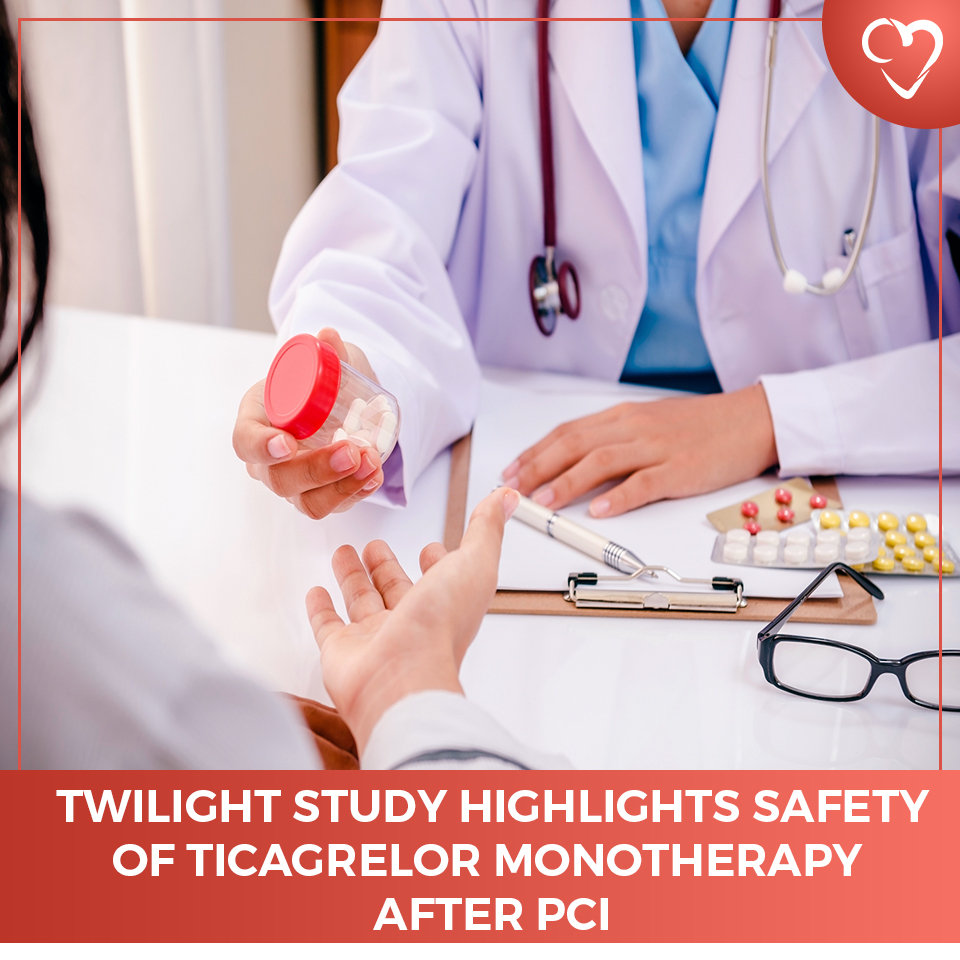
Experts have found that aspirin can be dropped three months after PCI within this high risk cohort. Brilinta (Ticagrelor) alone had less bleeding with similar benefits than when given with aspirin, as indicated by the Twilight study on antiplatelet therapies published in the New England Journal of Medicine. Researchers found that among high-risk patients who underwent PCI and completed 3 months of dual antiplatelet therapy, ticagrelor monotherapy was associated with a lower incidence of clinically relevant bleeding than ticagrelor plus aspirin, with no higher risk of death, myocardial infarction, or stroke. Researchers further found that using more potent P2Y12 inhibitors or extension of the duration of dual antiplatelet therapy lowers residual ischemic risk among such patients but increases bleeding.
Within the study, all enrolled patients received open-label Brilinta and enteric-coated aspirin after the index PCI. Ticagrelor monotherapy was associated with a 44% lower risk of BARC type 2, 3, or 5 bleeding over 1 year than ticagrelor plus aspirin. Researchers in this particular trial found no evidence of a higher risk of death, myocardial infarction, or stroke among patients who received ticagrelor monotherapy than among those who received ticagrelor plus aspirin.
With newer drug-eluting release mechanisms and stents, variations in antiplatelet duration and regimen, the TWILIGHT study allows clinicians more options to safely treat patients with antiplatelet agents after PCI.